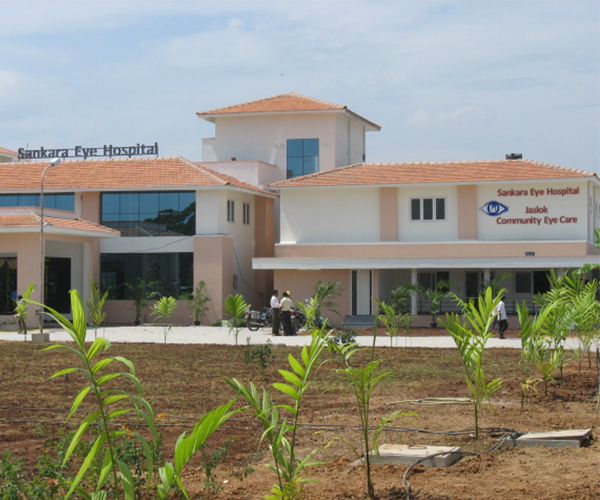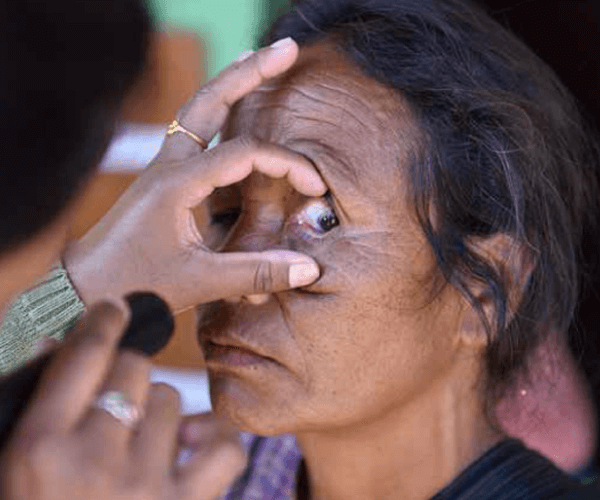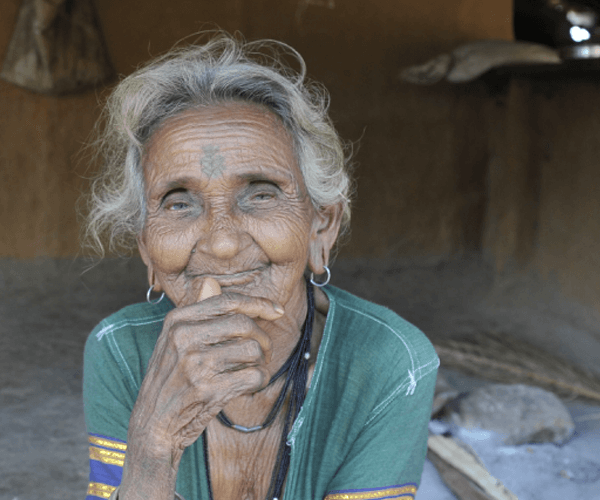
What We Do
WHAT WE DO
With over 7 million, India has the largest number of blind and visually impaired people over the age of 50. Mission for Vision is among the larger NGOs working to eradicate avoidable blindness across the country. It does so by enabling high-quality, comprehensive eye care to the most disadvantaged communities; human resource development; research; and policy engagement in India, Nigeria, and Bhutan.

I. INFRASTRUCTURE SUPPORT
Health infrastructure with the latest technology and equipment is imperative for delivering high-quality, comprehensive, effective and efficient eye health services. Mission for Vision supports infrastructure development in partnership with reputable organisations to ensure free and affordable treatment is provided to the most vulnerable communities. The support extends to construction of wards and operation theatres in many centres across the country, equipment, and occasionally vehicles for transportation. This work aligns with the UN’s Sustainable Development Goals for infrastructure (SDG 9) and partnerships (SDG 17).
![]() Establishing Primary, Secondary and Tertiary Eye Care Centres
Establishing Primary, Secondary and Tertiary Eye Care Centres

II. COMMUNITY EYE HEALTH
MFV’s largest and longest running eye care work is in community eye health to ensure universal eye health. It supports eye screening, prescription and distribution of spectacles, facilitates free or subsidised eye surgeries, and follow-up post-treatment care for cataracts and other leading causes of blindness. This work is done in partnership with reputed organisations across the country. It primarily benefits those over 50 years old that come from poor, rural communities – those marginalised and without geographic and economic access to quality eye care.

Eye Screening
Free Cataract Surgery
Affordable Eye Treatments

III. PROGRAMME IMPACT
Mission for Vision measures the impact of its programmes to determine effectiveness. It helps understand beneficiaries’ needs, lacunae in work, better methods of partnership, future programmes, and enable policy development. MFV strengthens relationships with its partners across the country by regularly sharing information for them to understand their performance and outreach which can improve the effective and quality of their services. Apart from patient satisfaction surveys, MFV has developed assessment tools that have evolved into best practices, specifically PRISM, camp assessments, and hospital assessments. Read more about them here.
![]() Research and Best Practices
Research and Best Practices

IV. RESEARCH
Conducting reliable and valid research studies is an effective method of adding to the knowledge base in the eye health field, specifically in India. And sound evidence is the cornerstone for good policy and practice. Thus, Mission for Vision analyses data through its research initiatives and disseminates it globally. Through various research projects, insights are gained in barriers to uptake of services, change in quality of life, health status of patients, and perceptions of community to name a few. Read papers published by MFV in reputed journals here.
![]() Research and Best Practices
Research and Best Practices

V. ADVOCACY
Mission for Vision works to influence policy at national and international levels to advocate for best practices and appropriate policies in universal eye health and a disability-inclusive world. MFV’s efforts in advocacy include participation in various local and international forums, dissemination of papers and presentations, and generating awareness on eye health for the general public. Its membership in IAPB and VISION 2020: The Right to Sight – INDIA also gives the organisation additional platforms to serve its vision.
![]() Advocacy
Advocacy
![]() Research and Best Practices
Research and Best Practices